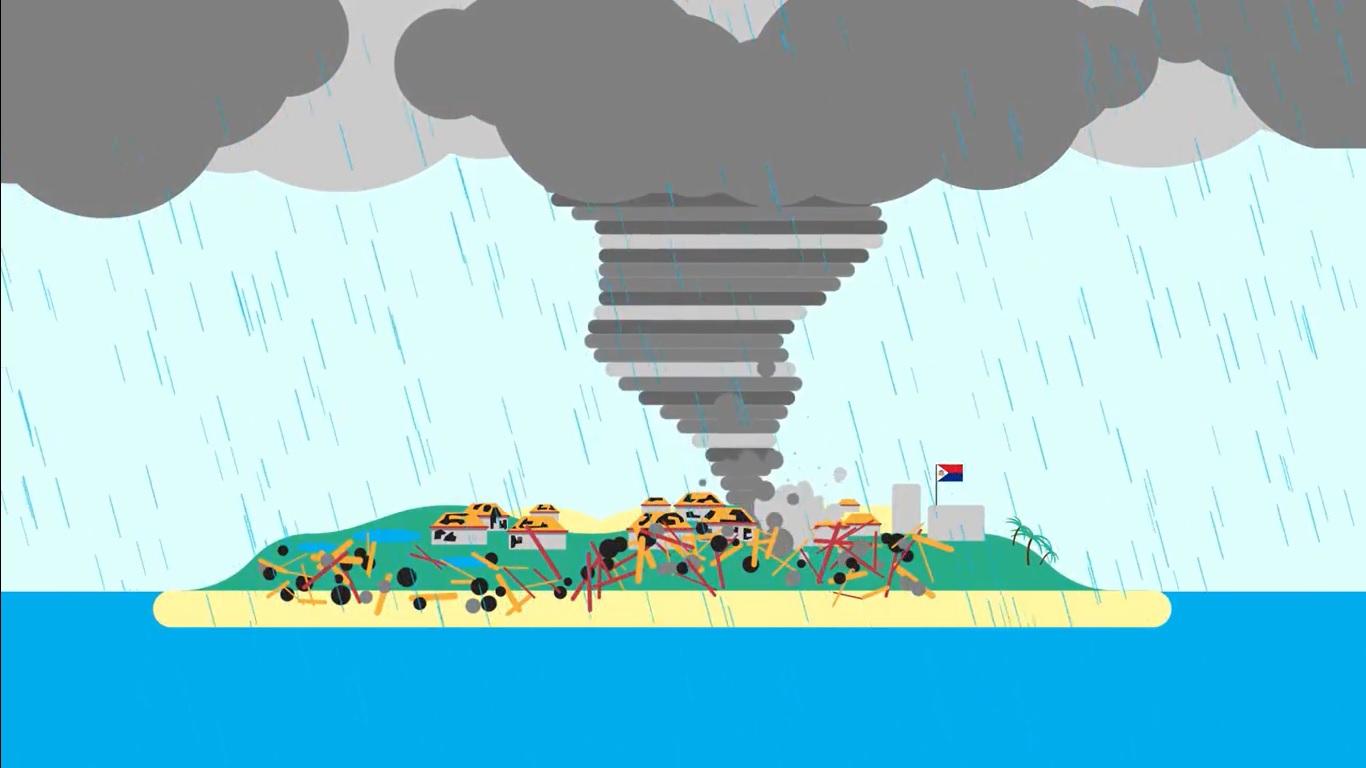Predicting extreme weather events to reduce impact on coastal communities

Delft, The Netherlands – 31 July 2018. An international team of researchers, led by IHE Delft Institute for Water Education, has developed adaptive risk management strategies for coastal communities. Coastal floods are regarded as one of the most dangerous and harmful of all natural disasters. The researchers have collected data from several sites around the world to measure how vulnerable an area is, when hit by a tsunami or hurricane. With this information, governments can make better decisions to prepare for extreme hydro-meteorological events.
Hurricane Irma
Rapid urbanisation in coastal areas, combined with climate change and poor governance, poses a great risk of devastation in coastal communities. Extreme weather events and tsunamis are posing serious threats to people living on islands and near coasts. In September 2017, Hurricane “Irma” destroyed a large portion of Sint Maarten and other islands in the Caribbean Sea, leaving thousands homeless. Irma was one of the strongest category 5 hurricanes ever recorded in modern history, causing loss of life and enormous material damage.
The hurricane season is well underway, but is expected to reach its peak in the fall. The chance of the same area being hit again, is significant. The international team of researchers wants to prevent the recurrence of such a catastrophe and have established how vulnerable an area is when hit by a tsunami or hurricane. They have developed tools and models that can be used for simulation of hurricanes, inland flooding and emergency evacuation. This knowledge creates new insights for government and policy makers to make better decisions and minimize risks to people’s health and safety.
About the research project
The four-year research project named PEARL (www.pearl-fp7.eu) developed adaptive risk management strategies for coastal communities focusing on extreme hydro-meteorological events. The team used a multidisciplinary approach by integrating social, environmental and technical research and innovation. The project is financed by the European Commission and executed by 24 research institutes from 13 countries.
Animation video (free to use): YouTube link
Project leader: Zoran Vojinovic (+31-6-46149577, z.vojinovic@un-ihe.org)
Media requests: Emma Meurs (+31-6-4390 3823, e.meurs@un-ihe.org)
About IHE Delft Institute for Water Education
IHE Delft (www.un-ihe.org) is the largest international graduate water education facility in the world. Since 1957 the Institute has provided education to more than 15,000 water professionals from over 160 countries. Numerous research and capacity development projects are carried out in partnership throughout the world.


























